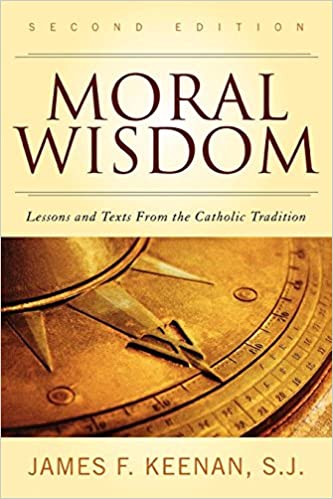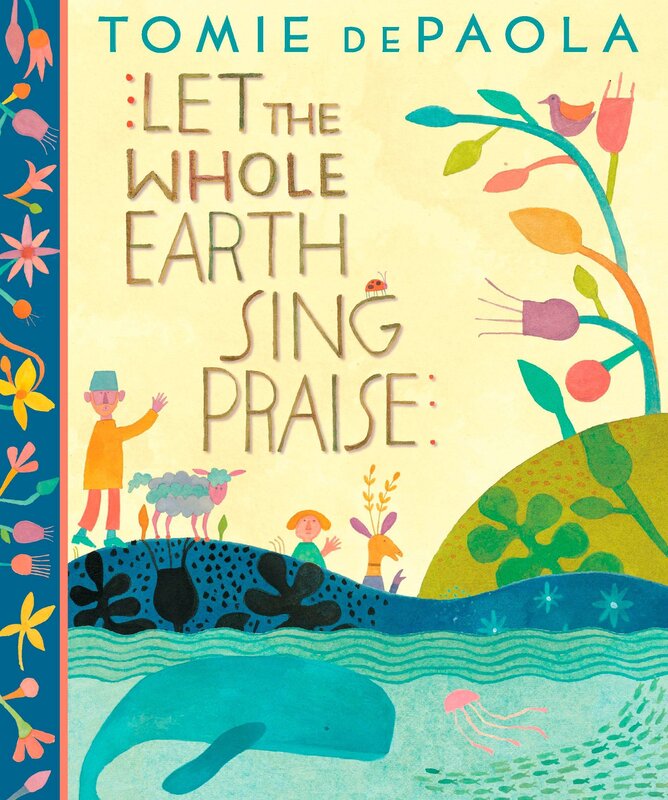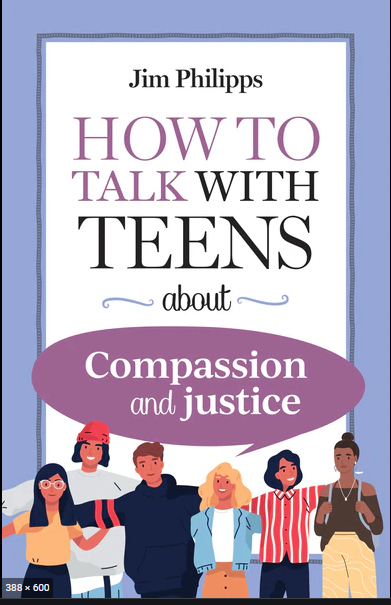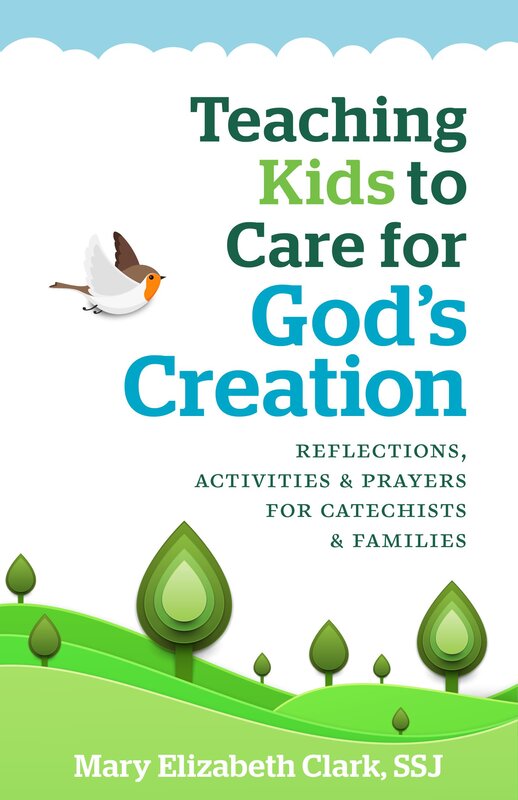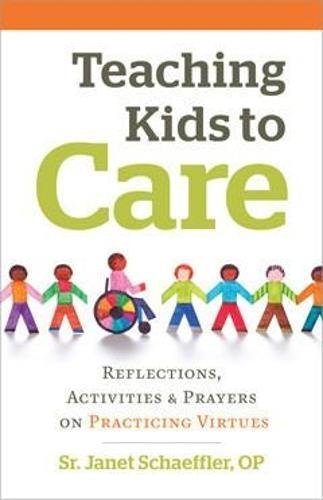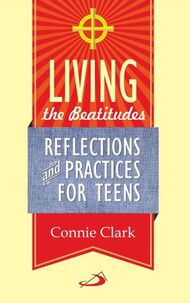Online Resources for
Catholic Morality &
Conscience Formation
|
|
|
These resources for
conscience formation for ADULTS
are available in the diocesan library.

Water Shaping Stone: Faith, Relationships, and Conscience Formation
Kathryn Lilla Cox
Liturgical Press, 2015
The Catholic Tradition requires the faithful to form and follow their conscience. This is the case even with the recognition that consciences can be malformed and one can make errors in practical judgments. Water Shaping Stone examines various aspects of this tradition regarding conscience by using, among other sources, twentieth-century magisterial documents, theologians' works, and Scripture. Kathryn Lilla Cox argues that while the Magisterium retains teaching authority, and a responsibility to help form consciences through its teaching, focusing only on the Magisterium leads to incomplete formation. A more holistic vision of conscience formation means considering the formation of the moral agent to be a multifaceted process that draws on, for example, teaching, prayer, rituals, Scripture, practices, and virtues, along with relationships with the Triune God and communities of accountability. This vision of conscience formation retains the magisterial teaching authority while acknowledging discipleship as the theological basis for making and assessing practical judgments of conscience.
Kathryn Lilla Cox
Liturgical Press, 2015
The Catholic Tradition requires the faithful to form and follow their conscience. This is the case even with the recognition that consciences can be malformed and one can make errors in practical judgments. Water Shaping Stone examines various aspects of this tradition regarding conscience by using, among other sources, twentieth-century magisterial documents, theologians' works, and Scripture. Kathryn Lilla Cox argues that while the Magisterium retains teaching authority, and a responsibility to help form consciences through its teaching, focusing only on the Magisterium leads to incomplete formation. A more holistic vision of conscience formation means considering the formation of the moral agent to be a multifaceted process that draws on, for example, teaching, prayer, rituals, Scripture, practices, and virtues, along with relationships with the Triune God and communities of accountability. This vision of conscience formation retains the magisterial teaching authority while acknowledging discipleship as the theological basis for making and assessing practical judgments of conscience.
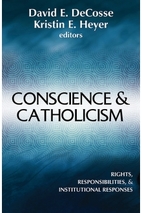
Conscience & Catholicism: Rights, Responsibilities, and Institutional Responses
David E. DeCosse and Kristin E. Heyer, Editors
Orbis Books, 2015
In this volume leading ethicists and theologians address “conscience,” a term with loaded meaning and controversy in the Catholic Church in recent decades around issues like political participation, human sexuality, war and institutional violence, and theological dissent. Many essays in this challenging and far-ranging volume focus on the tension between the primacy of conscience (codified at Vatican II) and the processes and cultures of Catholic institutions, including schools, hospitals, and medical research facilities. Intended for a scholarly audience, this valuable collection will also appeal to those involved in Catholic health care, catechetical work, and pastoral ministry.
David E. DeCosse and Kristin E. Heyer, Editors
Orbis Books, 2015
In this volume leading ethicists and theologians address “conscience,” a term with loaded meaning and controversy in the Catholic Church in recent decades around issues like political participation, human sexuality, war and institutional violence, and theological dissent. Many essays in this challenging and far-ranging volume focus on the tension between the primacy of conscience (codified at Vatican II) and the processes and cultures of Catholic institutions, including schools, hospitals, and medical research facilities. Intended for a scholarly audience, this valuable collection will also appeal to those involved in Catholic health care, catechetical work, and pastoral ministry.
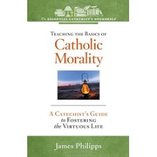
Teaching the Basics of Catholic Morality: A Catechist's Guide to Fostering the Virtuous Life
James Philipps
Twenty Third Publications, 2014.
Grounded in scripture and Church teaching, this concise guide places laws and commandments in the context of God's love and the call to walk with Jesus. The classroom-tested activities can be adapted for students of all ages and the discussions about contemporary challenges to moral living make this a very relevant resource. Philipps helps teachers and catechists convey that faith is not a checklist of moral dos and don’ts, but a joyful way of living that honors the sacredness of every human being.
James Philipps
Twenty Third Publications, 2014.
Grounded in scripture and Church teaching, this concise guide places laws and commandments in the context of God's love and the call to walk with Jesus. The classroom-tested activities can be adapted for students of all ages and the discussions about contemporary challenges to moral living make this a very relevant resource. Philipps helps teachers and catechists convey that faith is not a checklist of moral dos and don’ts, but a joyful way of living that honors the sacredness of every human being.
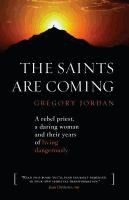
The Saints Are Coming
Gregory Jordan
Twenty Third Publications, 2014
"The gripping, true story of a parish community set in one of the most violent places on earth: the Anapra barrio in Juarez, Mexico. Kevin Mullins, a rowdy Australian priest, and his housekeeper, Rayna Hernandez, risk everything to build a parish while dealing with murderous drug cartels, oppressive poverty, powerful cults, roving street gangs, and crooked government officials. As homes burn, people disappear, and bodies are discovered, Father Kevin and Rayna battle to keep their parishioners alive while transforming the community into a force against evil. The page-turning, thought-provoking narrative is told with unflinching honesty by author and journalist Greg Jordan. Perfect for parish reading groups, this is an illuminating tale of spiritual resistance, and the church’s mission in a dangerous and complex world."
Gregory Jordan
Twenty Third Publications, 2014
"The gripping, true story of a parish community set in one of the most violent places on earth: the Anapra barrio in Juarez, Mexico. Kevin Mullins, a rowdy Australian priest, and his housekeeper, Rayna Hernandez, risk everything to build a parish while dealing with murderous drug cartels, oppressive poverty, powerful cults, roving street gangs, and crooked government officials. As homes burn, people disappear, and bodies are discovered, Father Kevin and Rayna battle to keep their parishioners alive while transforming the community into a force against evil. The page-turning, thought-provoking narrative is told with unflinching honesty by author and journalist Greg Jordan. Perfect for parish reading groups, this is an illuminating tale of spiritual resistance, and the church’s mission in a dangerous and complex world."
|
Moral Wisdom: Lessons and Texts from the Catholic Tradition
James F. Keenan, SJ Rowman & Littlefield, 2010 "Brings together deep theological knowledge, historical lessons, acute pastoral sensitivity, broad spiritual experiences, and true prudence in proposing moral wisdom for Christian life and spirituality today." |
These resources for
conscience formation for Children
are available in the diocesan library.
|
Say Something (with Pray Me a Story Lesson)
By Peggy Moss Loyola Press, 2004 A child who never says anything when other children are being teased or bullied finds herself in their position one day when jokes are made at her expense and no one speaks up. Great resource to start a discussion about BULLYING! |
|
The Three Questions: Based on a Story by Leo Tolstoy (with Pray Me a Story Lesson)
Written and illustrated by Jon J Muth Scholastic Press, 2002 When is the best time to do things? Who is the most important one? What is the right thing to do? These questions and more are part of this profound yet simple book about compassion and living in the moment. |
|
Let the Whole Earth Sing Praise
by Tomie DePaola G. P. Putnam's Sons, 2011 There's joy to be found everywhere you look - the sun and moon, mountains and rivers, plants and animals, and all people, young and old. Inspired by Old Testament Scripture and the beautiful fold art of the Otomi people of Puebla, Mexico, the beloved author-illustrator praises the beauty of Creation, making this book a delight to share with the whole family. |
|
Horton Hears a Who! (with Pray Me a Story Lesson)
by Dr. Suess Random House, 1954, 1982 The answer to the age-old question "Am I my brother's keeper?" takes on greater urgency in our world today. Showing care and respect for others, especially the most vulnerable, is an attitude to be nurtured and practiced throughout our lives. |
These resources for
conscience formation for Catechists
are available in the diocesan library.
|
How to Talk with Teens about Compassion and Justice
by Jim Philipps Twenty-Third Publications, 2021 How do you talk with teenagers, especially when they don't want to talk to you? Or when the subject is a rough one? This 32-page booklet offer ideas for approaching challenging topics with sensitivity and openness. You'll find information, prayers, and suggestions for conversation starters and activities that are grounded in faith and rooted in loving concern for a young person's well-being and growth. |
|
Teaching Kids to Care for God's Creation: Reflections, Activities, & Prayers for Catechists & Families
by Mary Elizabeth Clark, SSJ Twenty-Third Publications, 2018 This 80-page book contains 30 lesson for children and families about the good work of keeping our planet livable and sustainable for coming generations. Connect our practical actions to the Gospel, and deepen our spiritual sense of our common home. |
|
Teaching Kids to Care: Reflections, Activities, & Prayers on Practicing Virtues
by Sr. Janet Schaeffler, OP Twenty-Third Publications, 2017 This 80-page book provides hundreds of ideas, approaches, and practices, all organized by the virtues of caring: compassion, empathy, helpfulness, integrity, justice, and more. Can be used at home, in classrooms, or in small or large groups. |
